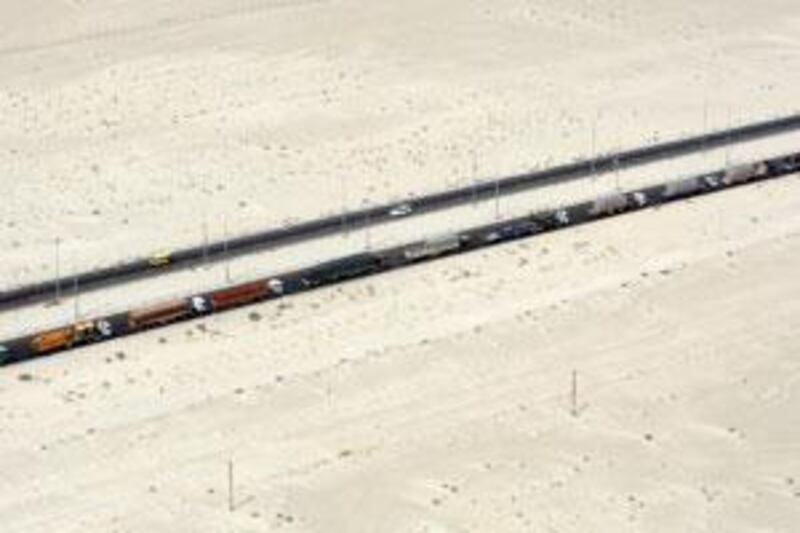The Abu Dhabi Government may ask construction companies to provide Dh100 billion (US$27.22bn) in financing for transport projects over the next 20 years, as planners look to increase the role of public-private partnerships (PPPs). The funds would comprise a third of the estimated Dh300bn in metro, tram, high-speed rail, motorway and bridge projects outlined in the Government's 2030 plan.
John Lee, the motorway and planning adviser at the Abu Dhabi Department of Transport (DOT), said the projects coincided with those for new airports and port, power, water and sewerage facilities, nuclear reactors, and the possibility of more funding needed for Dubai. "All sorts of things are causing a rethink about the scheduling of expenditure," Mr Lee said yesterday at the Road Planning, Design and Construction conference hosted by IQPC.
"If we can get the private sector to come up with capital, whether from equity or loans, to build elements of the plan, it is going to be very attractive for the Government because it results in a shifting in expenditures from the Government purse to the future. So PPPs [public-private partnerships] are going to be something we look at." A PPP is typically structured with a builder sharing the price of an infrastructure project by paying the upfront costs of construction.
The government client then pays for the project incrementally over the life of the assets, which can be between 25 and 30 years in the case of a motorway. This relieves the government of coming up with the entire capital costs of the project at the outset and gives the contractors an incentive to finish on time and on budget. The region's first transport PPP, and perhaps the largest in the world right now, is to be announced within two months by the DOT for the Mafraq-Ghweifat motorway, which is currently the most dangerous road in the emirate and will be widened to as many as four lanes each way over its 327km distance, all the way to the Saudi border.
Three consortiums are in the running for the Dh10bn deal. Under the terms of the project, the builders will receive a monthly payment for a period of 25 years as long as the motorway remains open and the number of road deaths decrease. The DOT will rely on the initial results of this project to determine whether other projects are structured in the same way. "If this one succeeds, it will certainly be a model for the future," Mr Lee said. "If it is not successful, we will likely not get a second chance."
Transport firms said they were open to the idea but much depended on the details. "This is something generally we don't pursue, but if it is out there we will definitely look there," said Ala Ghanem, the regional director of business development at Invensys Rail Group in Dubai. "If we can see potential and it is a good deal, then we would consider it." Paul Redstone, the regional director of Bovis Lend Lease, a project management firm working on the Dubai Metro, said Bovis was very active in building hospitals under a PPP structure in Australia, Europe and the US, and was looking into similar projects in the Middle East, particularly with government subsidised housing.
"We have not focused on infrastructure projects under this model but a lot of governments are moving this way. It's inevitable," Mr Redstone said. "We would have to look at it very carefully, however." igale@thenational.ae






